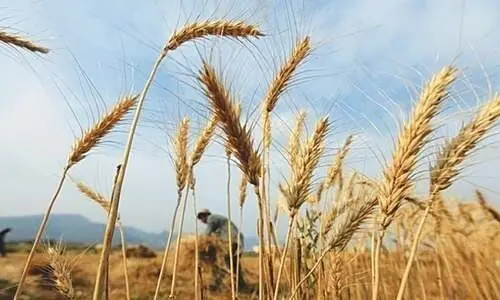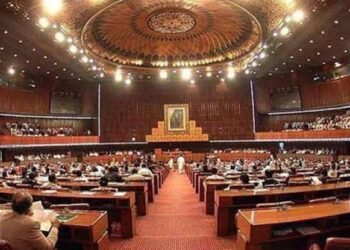ISLAMABAD; The federal government has approved the national wheat policy for 2025–26, lifting all restrictions on the inter-provincial movement of wheat to ensure its smooth supply across the country, according to a statement issued by the Prime Minister’s Office (PMO) on Sunday.
The policy was approved during a high-level meeting chaired by Prime Minister Shehbaz Sharif, which was attended by the chief ministers of Punjab, Sindh, Balochistan and Gilgit-Baltistan.
A representative of the Khyber Pakhtunkhwa government, the Azad Jammu and Kashmir prime minister, and other relevant stakeholders also participated.
The decision comes after Punjab tightened controls on wheat and flour transportation through a restrictive permit system aimed at curbing price increases inside the province — a move that was widely criticised by Khyber Pakhtunkhwa.
PM Shehbaz highlighted the central role of wheat in Pakistan’s agricultural economy, calling it not only a staple food but also the “biggest source of income for farmers”.
He assured that the government was fully aware of the farmers’ challenges and reaffirmed its commitment to their welfare, describing them as the “backbone of the economy”.
He noted that the wheat policy was formulated after extensive consultations with all stakeholders, including provincial governments, farmers’ associations and industrialists, and appreciated provincial cooperation in reaching a consensus.
The PM expressed hope that the policy would protect public interests, increase farmers’ incomes, and strengthen the agriculture sector, while contributing to the country’s food security.
Under the new policy, federal and provincial governments will procure strategic wheat reserves of around 6.2 million tonnes during the 2025–26 harvest.
Wheat will be purchased at Rs3,500 per 40 kg, aligned with the international import price, to ensure fair profits for farmers and competitiveness in the market.
To oversee implementation, the National Food Security Committee will meet weekly with representation from all provinces and report directly to the prime minister.
The participants were assured that the government will secure sufficient stocks to stabilise reserves and guarantee fair pricing for farmers.




































































